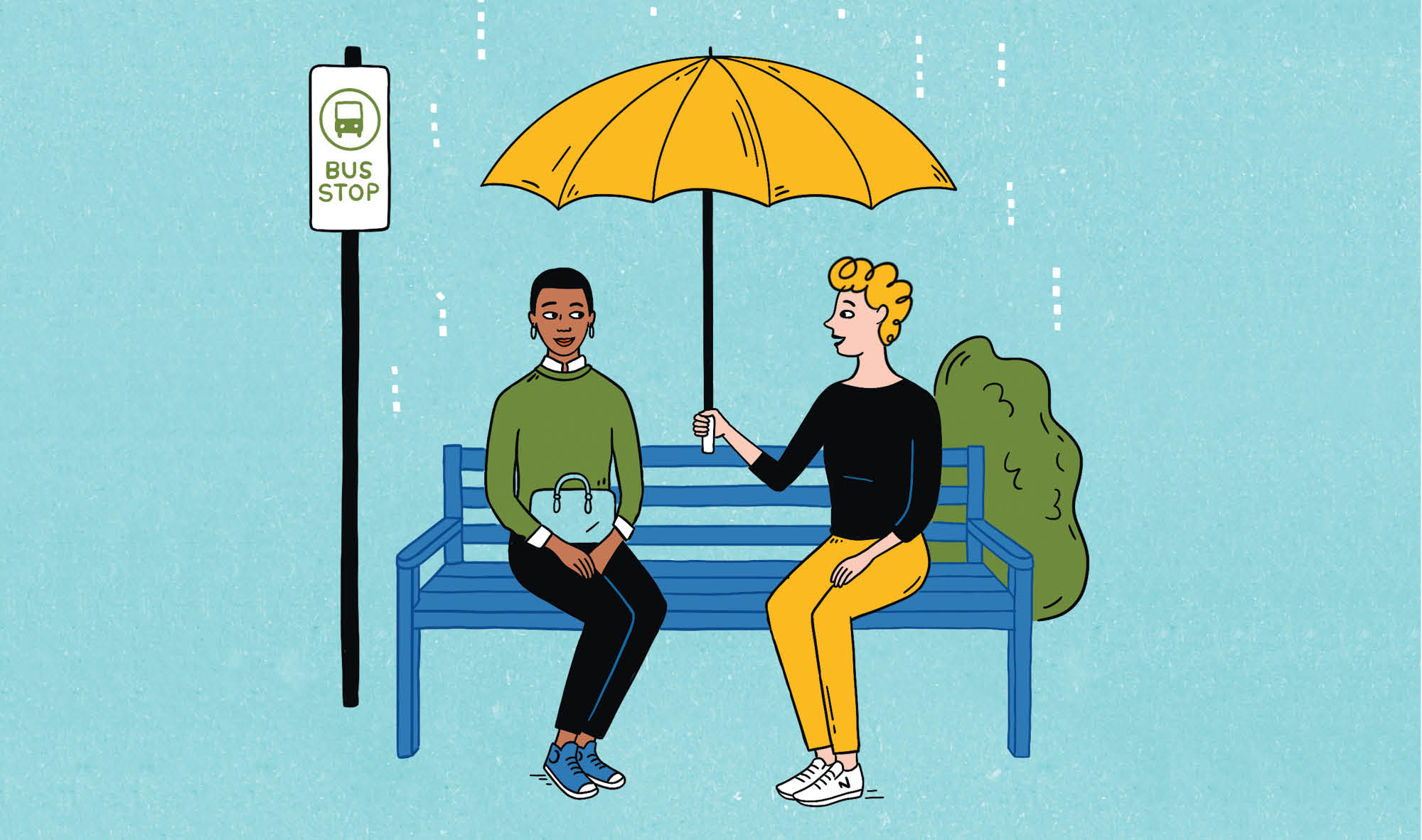Don’t cheat yourself out of social connections

The pandemic-driven mental health crisis has underscored the consequences of social isolation and loneliness. Yet in everyday life, most of us make a habit of cutting off conversations with new acquaintances after a few minutes of polite chatter—whether it’s on an airplane, at a conference, or at a cocktail party.
This tendency to cut things short not only runs counter to our own best interests, but it’s based on fundamentally mistaken beliefs about conversation, according to a new study co-authored by Associate Professor Juliana Schroeder, the Harold Furst Chair in Management Philosophy and Values.
“All close friendships begin with a conversation between strangers. The more you talk with someone, the more you know about them and the more you might have to talk about,” Schroeder says.
Over several experiments with some 1,000 participants, Schroeder and colleagues found that most people predicted a chat with a stranger would get less enjoyable over time, yet it did not—and for many, their enjoyment increased. The main reason people cut things short was worry that they wouldn’t have enough to talk about rather than social awkwardness or some other reason.
“There are so many good reasons to be socially engaged for people’s physical and mental health,” says Schroeder. “Yet we find that over and over again, people tend to be less social than is optimal for their well-being.”